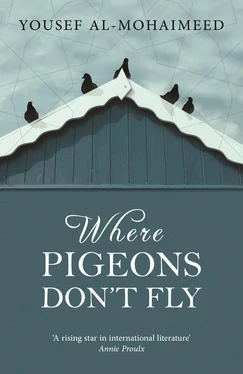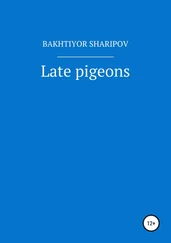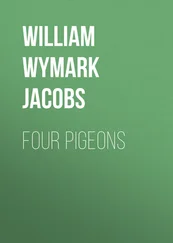He then set out conditions which he asked them to pledge to uphold, including that they would not rob any man nor carry out any act in the name of religion or injurious to the sovereign without consulting the sheikhs and their leaders, nor would they take up arms against any of the king’s subjects, Bedouin or townsfolk, without the knowledge and express command of the sovereign. Whosoever disobeyed these conditions would have his case brought before the king, who would take responsibility for disciplining him. Furthermore, they would use neither God’s Book nor the Prophet’s example as justification for their actions until they have consulted the sheikhs and obtained a fatwa . Abdel Aziz Bin Musaaid was sent to them and they pledged to observe these conditions.
Shawwal 28, 1346 A.H
The appearance of the telegraph in the land of the Muslims back in 1928 was a blow to the True Faith and stirred up the Brothers in defence of their religion. The customs houses and guard posts erected along the borders with Iraq sent them flying on their horses, white thaubs and turbans flapping, swords bared, racing the wind that roughly flipped green pennants emblazoned with There is no god but God and Mohammed is His Prophet . They fasted for days and nights, their only sustenance a dried date wetted in parched throats and an unwavering zeal for the religion of God. If necessary they held up peaceful caravans, the passengers’ godlessness beyond dispute.
Concerning the telegraph, this is an innovation of recent times and we know nothing of its true nature. Having seen no pronouncement from the scholars on the subject we withhold judgment, for no man may speak in the name of God or His Prophet without knowledge and to declare something sinful and forbidden requires its true nature to first be understood.
Concerning the mosques of Hamza and Abu Rasheed, the Imam, may God grant him success, has advised us to destroy them immediately.
Concerning secular law, we have noted that it is practiced here and there in the Hejaz and it must cease forthwith, for there shall be no judgment save the rulings of divine law.
Concerning the entry of the Egyptian pilgrims on to God’s sacred soil with arms and military force, the Imam advised us to repel them by force of arms and prevent their displays of polytheism and other abominations.
Concerning the convoy, the Imam advised us to prevent it entering the Grand Mosque and ensure that no man might touch it or kiss it.
‘These people never died,’ a heavily moustachioed Rashed had once said to Saeed in Musafir Café. ‘They’ve just evolved and changed their outer appearance. The man who once wrapped a white turban around his head and accused anyone who wore the aqqal of godlessness is the same fellow who these days wears the thaub that stops midway down his calf and accuses those who wear the long thaub of wantonness, godlessness and hypocrisy!’
Saeed gave a small smile. ‘It’s not that bad,’ he objected. ‘They don’t call someone who lets his thaub down an infidel, they just advise him.’
‘Believe me Saeed, they’re the ones that pull the rope and loosen it. Give them an inch they pull even harder. Can you believe that they cut King Abdul Aziz’s thaub because he let it hang down?’
Saeed gave a loud laugh and said sarcastically, ‘You shouldn’t be so hard on them. They’re brave fellows.’
‘But don’t you believe that times repeat themselves, that things repeat themselves, even if the names might change? Just think, Saeed. They were fighting the infidel in Iraq, then they got involved with the British at the start of the last century and now they’re doing it all over again. Fighting in Iraq against the Americans and their “dogs” as they call them.’
Saeed shook his head as he attempted to light a cigarette. ‘No, Rashed, you’re mixing things up. There’s a difference between terrorism and jihad . I think the Brotherhood were mujahideen and their intentions were pure.’
Rashed closed the conversation. ‘You’re calling what’s happening in Iraq terrorism, but there are some that call it jihad and others that think of it as resistance and self-defence: the defence of one’s honour and religion!’
A few scant hairs atop his head, Rashed perched on a bar-stool drawing on the shisha’s tube, exhaling rising columns of smoke into the air and directing an unceasing flow of insults against everything around him. Saeed never argued with him, except when he wished to increase his own fund of knowledge. Life here was unbearable, he told his friend. Nothing had changed for a hundred years. Life spun in place. The grandsons of the ones who outlawed the telegraph and the radio had surfaced ten years ago to ban satellite dishes and receivers, and now they themselves were hopping back and forth between the very channels they had denounced: a mufti here, a dream interpreter there, a scholar of the hadith , a scholar of the Qur’an, a preacher, an expert in Islamic women’s issues, and, and, and …
Part 8. Dear Lorca, I stole no olives
The olive tree does not weep and does not laugh.
Mahmoud Darwish: The Butterfly Effect
— 57 —
IN RAJEHI MOSQUE ON the Eastern Ring Road, in the room where the corpses are washed, Fahd’s mother slept on the slab, eyes closed like Sleeping Beauty. Sleeping before being readied for her final rest. Is anyone ready for death? Don’t they always say that death comes suddenly? Why can’t the angel come gently, alighting in the room, sitting opposite the creature and, before asking if he might pluck out its soul, talk to him a little about his dreams and what he wants from the world, give him space to get his papers in good order, to wash the dishes and clean the tea cup, taking out the sodden mint leaf and throwing it in the bin, to fold his underwear and tidy up his things, to burn his secret diaries, write a will, pen a note setting out his feelings in the moment before his passing, describing the taste of death, sour or bitter, the faces of the those who will read the shahada over him, the eyes of the man who will wrap his face in a flimsy white cocoon?
Abu Ayoub’s two wives, Umm Yasser and Umm Muadh, came in, accompanying Lulua to the washing room, while Fahd squatted on the floor and wept noiselessly, his ghatra swathing his face. He felt the severe heat penetrate his eyes. The sound of cars and trucks speeding along the Eastern Ring Road ruptured the silence. A hand took hold of his wrist.
‘Take refuge from Satan. God comfort you.’
Muadh helped him to his feet and led him to an area set aside for relatives of the deceased. She sat him down and asked the coffee boy to pour him a cup. Abu Ayoub and Yasser were sipping coffee and talking to Ibrahim about unemployment, the stock exchange and the chaos of Riyadh’s job market.
How terrifying it is to sit next to cold-blooded killers! Fahd thought.
The phone of one of Abu Ayoub’s wives rang and she told her husband that it was time for the final prayer over the deceased. He stood up, holding on to Fahd with his icy hand and they went through a side door to where Soha’s body lay. The stench of ammonia filled the space, the humidity and dampness spreading out through the spacious room. Hearing voices, Lulua pulled back the white curtain and the men came in, Fahd bending over his mother’s tender brow and kissing it, followed by Abu Ayoub who pecked her head and boomed, ‘God, forgive her sins; make wide her path!’
Why was it that his hoarse voice reminded him of vegetable sellers?
Читать дальше












